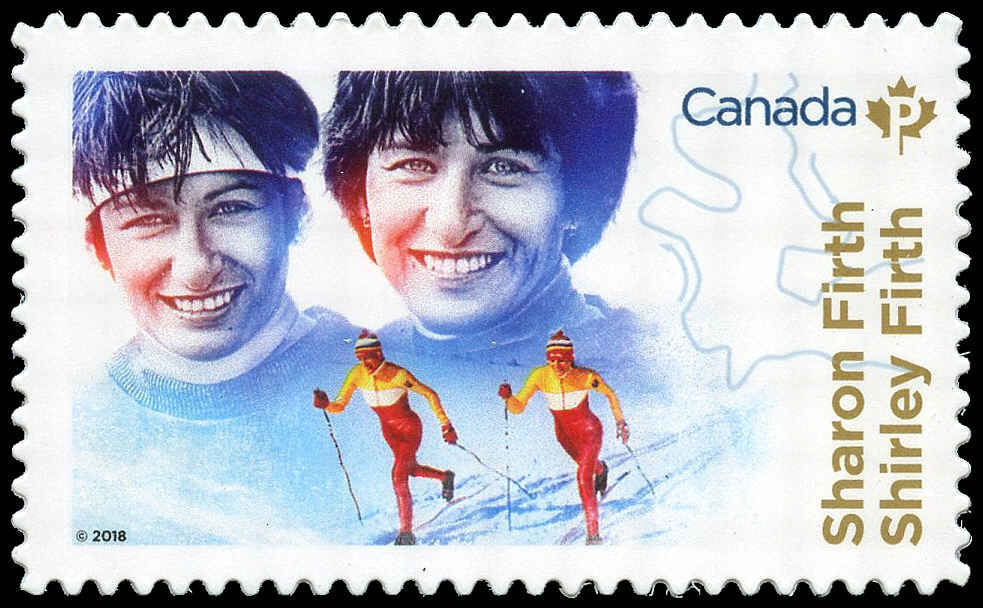
Firth passed all the TESTs
This past winter marked the 50th anniversary of Sharon Firth’s first appearance at the Canada Winter Games.
“At the time, the Canada Games was the biggest event in Canada for youth and it was an opportune time for Indigenous people to step on the platform and that’s what we did,” the 68-year-old resident of Harvie Heights, Alta., said. “The big thing today is Own the Podium and the Northwest Territories with my sister Shirley, myself and Roseanne Allen, that is what we did.”
Competing in February 1971 at the Canada Winter Games in Saskatoon, Sask., Shirley won gold in the five-kilometre race, Sharon won silver, Allen took the bronze. The three would capture the relay race. Both Shirley and Allen have passed away since that memorable year.
“At that time, we never thought about being Indigenous or anything. We were involved in the sport that we loved and we were representing our people,” Sharon said. “We were from the north and we represented Indigenous people from all over the country. It was about us performing and cleaning up and that is what we did. It was a good feeling to be standing on the podium.”

The results weren’t unexpected.
“We weren’t surprised because we trained hard and we were prepared for the Games. We were a strong team and we worked together as a team,” Firth said. “We surprised them because everybody was out to get the Firth twins because we were good. Everyone wanted to beat us.”
That would prove difficult.
“We trained every day after school and on weekends because it was fun. Anytime anything is fun, you are going to show up every day and all our friends did it. Peer pressure makes you go do what your friends were doing but it was good peer pressure.”
The Firths started skiing when they were 13 as part of the federally-funded Territorial Experimental Ski Training (T.E.S.T.) program. It was designed to develop internationally competitive skiers and provide opportunities for Indigenous youth.
“A lot of people said if it wasn’t for the T.E.S.T. program where would you girls be?” Firth said. “We didn’t think of it as the T.E.S.T. program. We thought of it as an opportunity to advance in life, go places, see the world and see how other cultures live.”
The girls trained on homemade courses in the Northwest Territories.
“It wasn’t handed to us. We worked our butts off,” Firth said.
She did dispute a commonly repeated story that the twins trained at night while wearing miner’s lights on their toques.
“They might have made that up. Anything for a story,” Firth said.
The sisters made their national debuts in 1968 as 15-year-olds, and began winning races in Canada, Alaska and Sweden. In their careers, Sharon won 19 golds, 14 silvers and four bronzes at the national championships and her sister captured 29 golds, 10 silvers and three bronzes. They were on the national team from 1970 to 1984.
Sharon also competed at the 1975 Canada Winter Games in Lethbridge, Atla., and the 1979 Games in Brandon, Man.
The Firth sisters, who were among the first Indigenous women to ever participate in various international cross-country ski competitions, competed for Canada at four straight Winter Olympic Games in 1972, 1976, 1980 and 1984. Only speed skating legend Gaetan Boucher, snowboarder Jasey-Jay Anderson and women’s hockey star Hayley Wickenheiser have either matched or bested that feat. At the Olympics, Sharon had two top-10 finishes in the relay and seven top-30 finishes in individual races.
When Sharon retired from skiing, she became a youth program advisor for the NWT government, speaking to communities across the territories.
Her impressive resume also includes: competing in four world championships; with her sister being the first Indigenous women to be elected to the Canadian Sports Hall of Fame; earning the NWT Commissioner’s Award in 1981; named to the Order of Canada in 1987; been a recipient of the Queen’s Golden Jubilee Award in 2002; inducted into the Canadian Ski Museum Hall of Fame in 1991; earned the National Aboriginal Achievement Award in 2005; inducted into the Banff Sports Hall of Fame in 2008; and received the Queen’s Silver Jubilee Award in 2012.
“It’s about treating people with respect and being the best you can be. That’s what I got out of travelling the world and competing in my sport,” she said.
The Firth sisters have also been featured in a pair of documentaries, the animated Molly of Denali show on CBC and on a Canada Post stamp issued in 2018.
The twins spent four years at a residential school where they were treated horribly. Sharon was hit hard by the recent news of the discovery of the remains of 215 children found at the Kamloops Indian Residential School.
“I just hope and pray that I don’t develop hatred in myself for the human race,” she said. “We were put on this world to get along and we are not. One race dominates. We are human beings with different backgrounds and if you can only imagine if there was only one race, how boring that would be. We should have peace within ourselves and not always be discriminating and saying bad things on social media.”
She believes Canada and the world could learn plenty from Indigenous peoples. She points to the Dene Games as an example.
“If an athlete doesn’t make his goal, the other athletes come and help him and they guide and coach him. You don’t see that in sports today. It is always beating one another up and it is usually just the first three who congratulate one another,” she said. “With the Dene Games, everyone shakes hands.”
She feels others should follow that example.
“We show sportsmanship and when you win, we all win.”

























